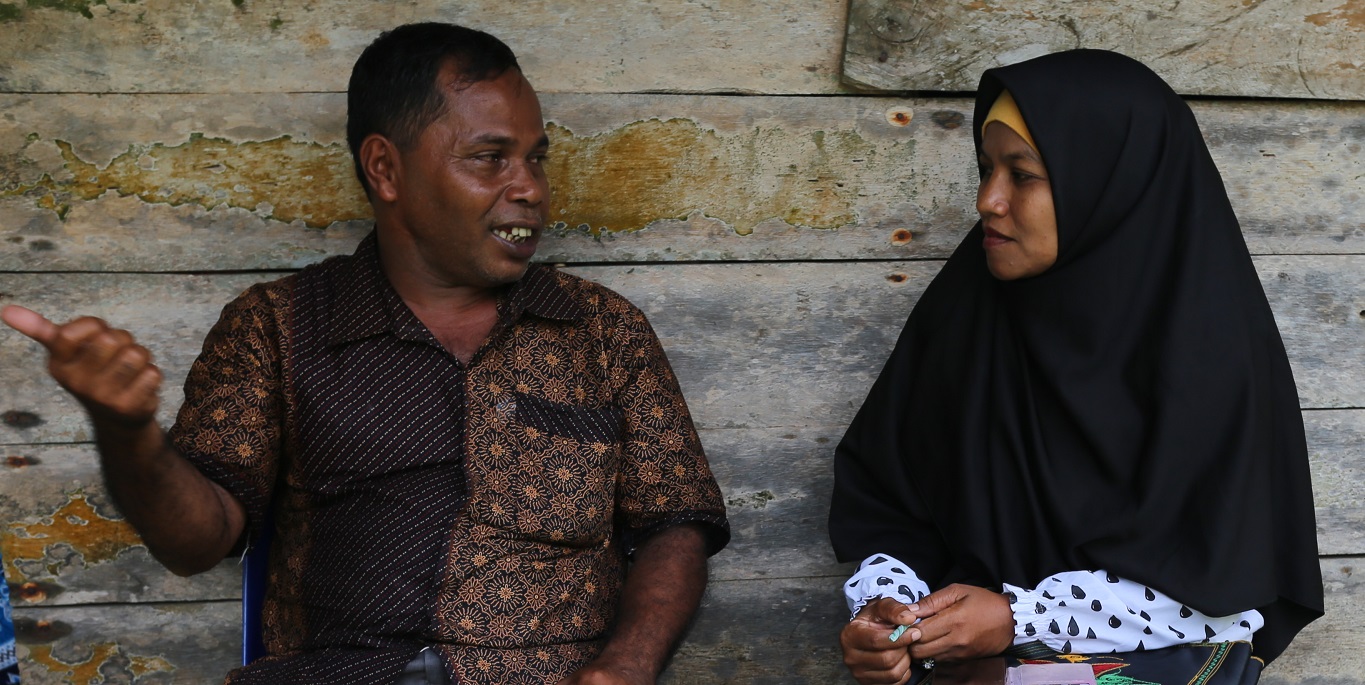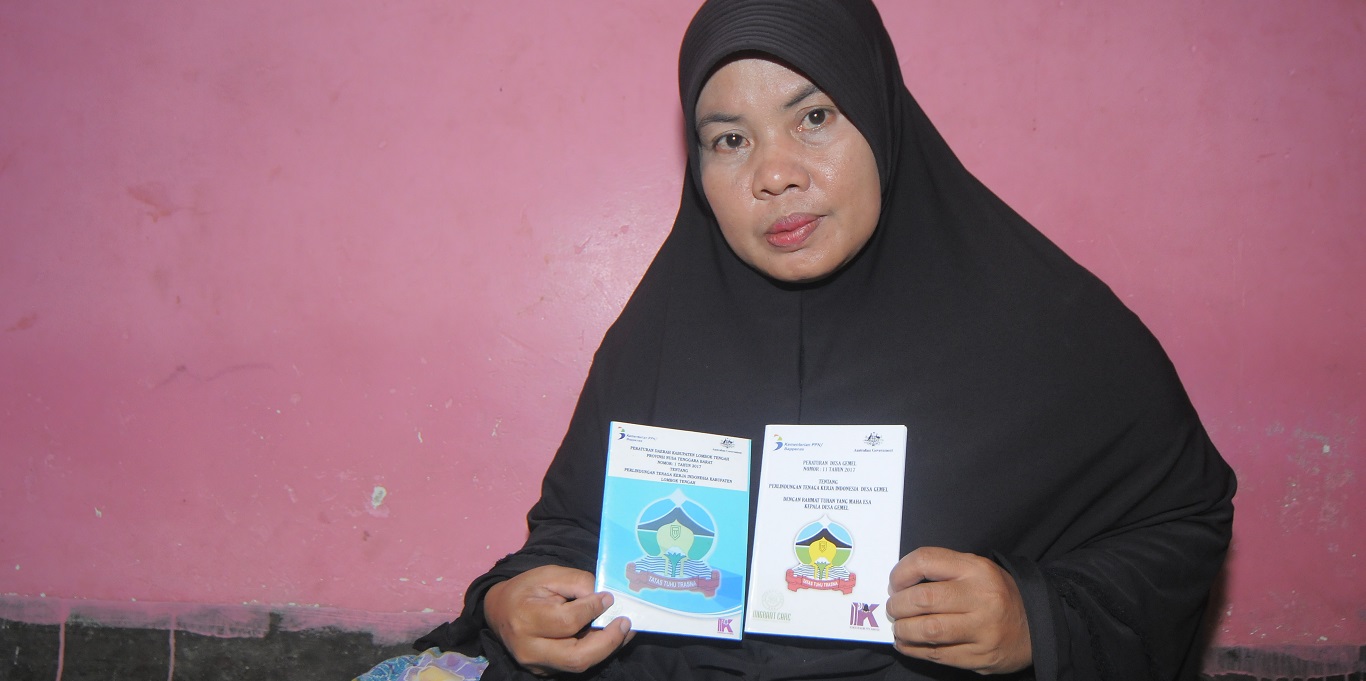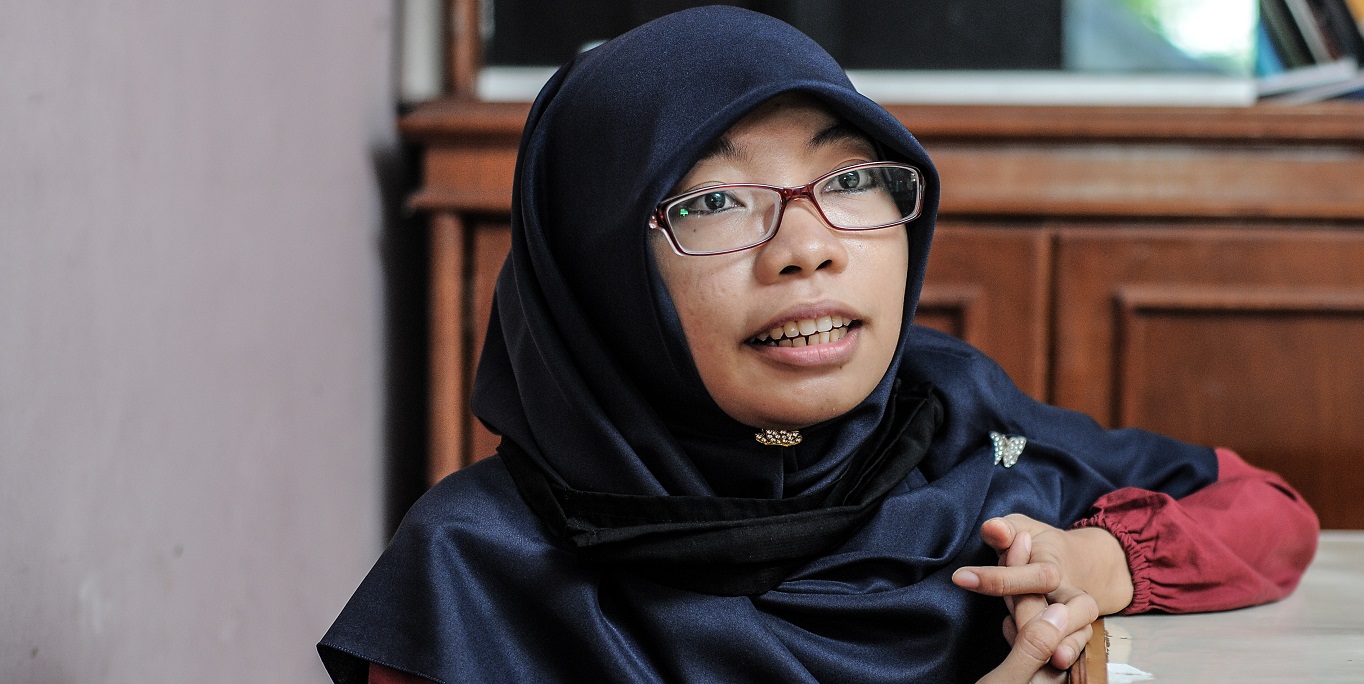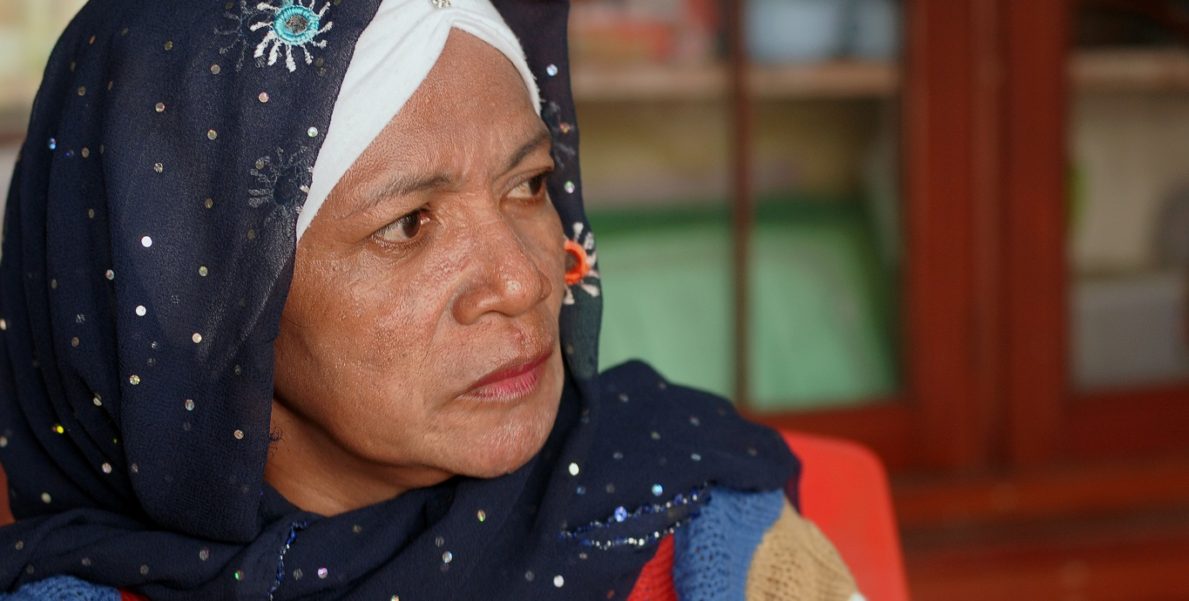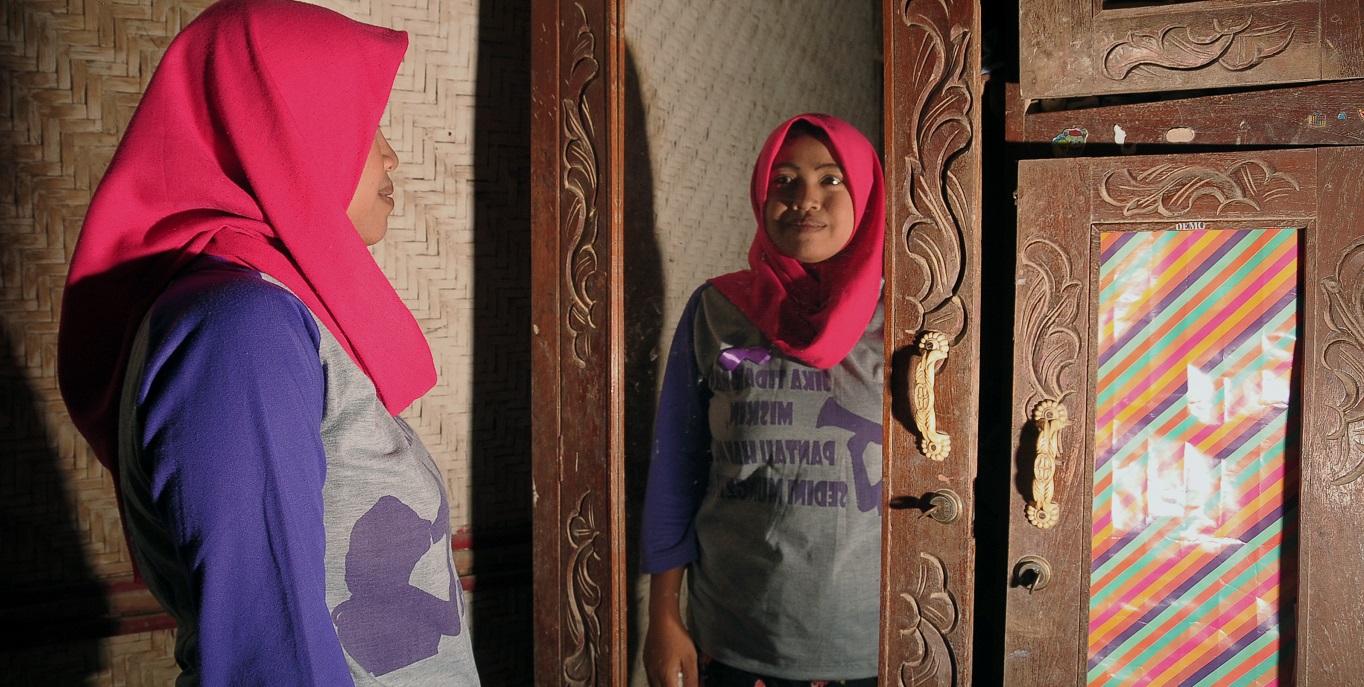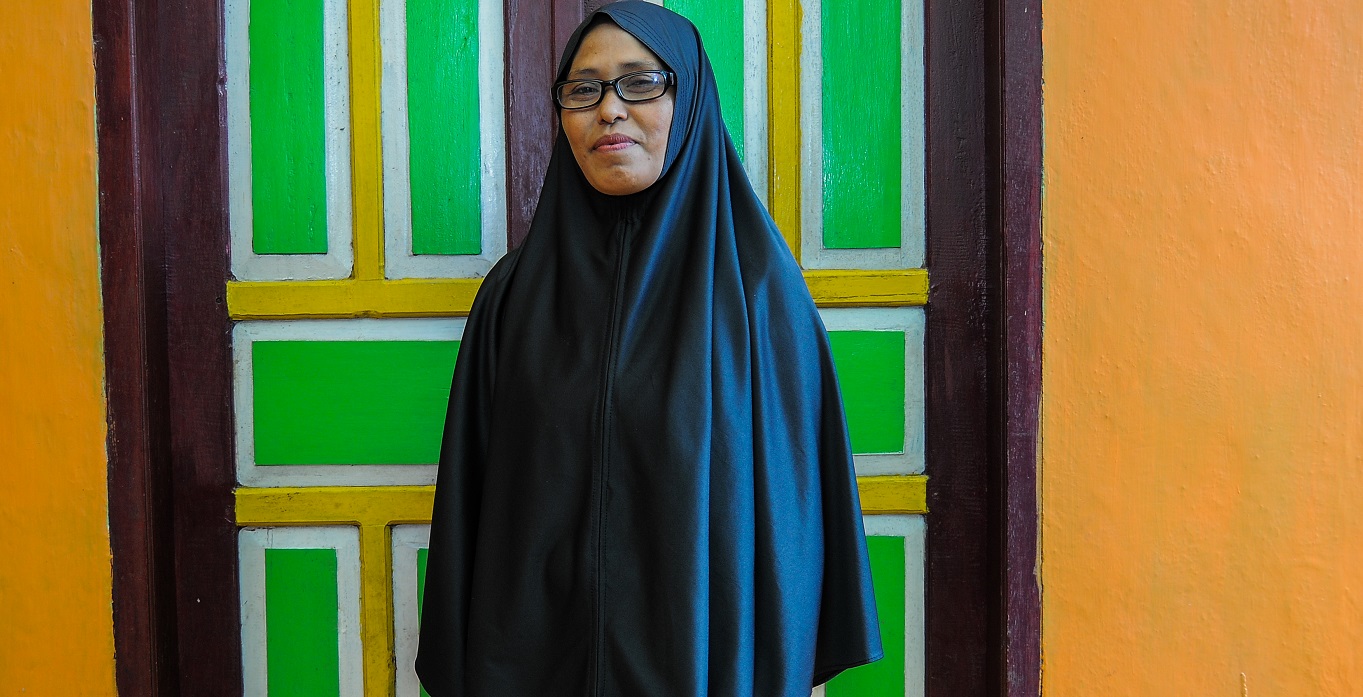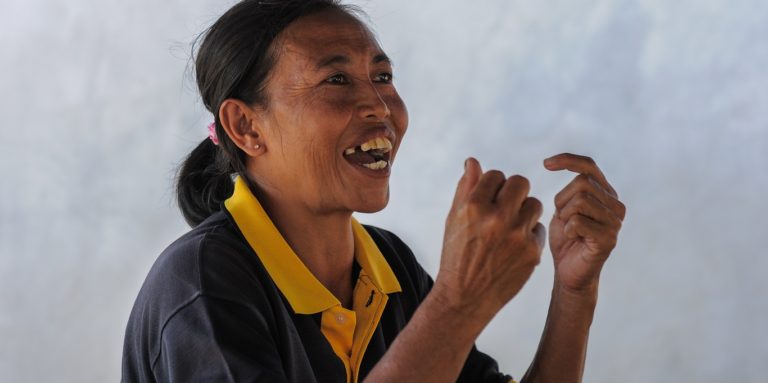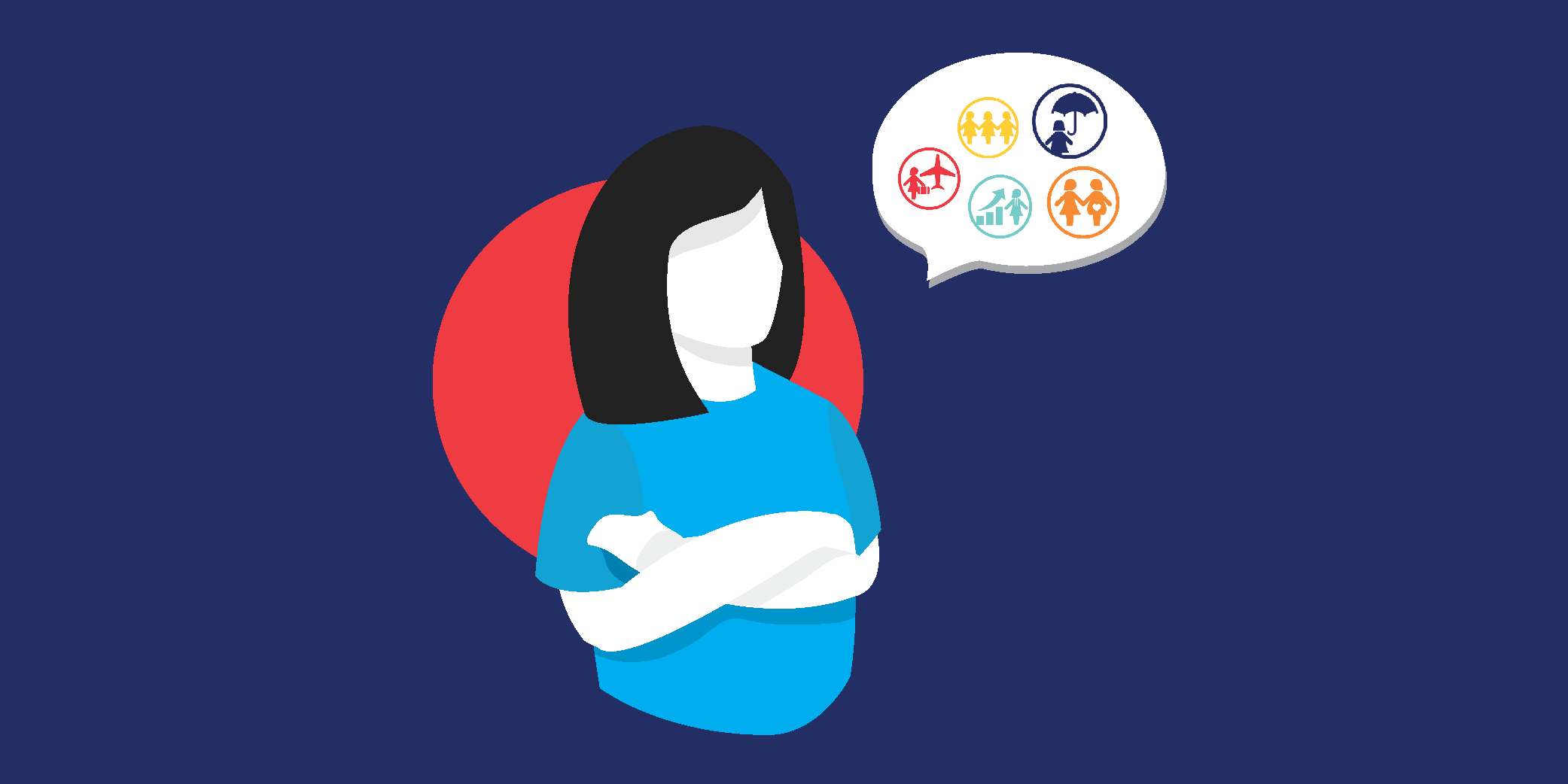Stories
Korihi Village Complaint Center Fights Violence Against Women
30 December 2016Penulis: admin
At a glance, Kak* Wa Lisi looked like an average housewive. But she had more on her sleeves. Wa Lisi, one of the residents in Korihi Village, Lohia district, Muna regency, Southeast Sulawesi, worked as an honorary staff at the Muna regency government office every Monday, Wednesday and Friday. And, as with most women at Korihi, she was skilled at weaving rattan and nentu (a kind of branch) a typical plant found in Southeast Sulawesi and specifically Muna island. In addition, Wa Lisi also worked as an advisor to women victims of violence at the Korihi village since 2010.
“We used to be blind. We had heard about violence against women, but we did not know how to overcome the issue,” Wa Lisi explained, laughing. Only when Lambu Ina Foundation entered Korihi, Wa Lisi and the women in the village understood their rights as women; as well as the steps to solve the problem when they become victims of such violence. Once a month, a meeting is held at the village to discuss the issue. It either took place in a villager’s house or at the village hall.
“Then my friends and I came up with an idea. We have to establish a center, some sort of a command post (Pos Komando, Posko). I suggested that we needed to have a committee for the Posko. Thank God, my idea was welcomed. The Posko was established in May 2015,” said Wa Lisi. Since then, the monthly meetings were held there.
“Moreover, we have just elected a new Head of Village. A woman was chosen. I became even more excited, because perhaps then it would be easier for us to ask for advocacy funds so that the Posko can run smoothly,” said Wa Lisi enthusiastically.
“Usually, when there was a victim, we paid for the process out of our own pocket, whatever we could afford, one or two thousand rupiah at each meeting for Posko funds. Hopefully now this can be included in the village budget. Because we want to be independent. We don’t want this program to stop when Lambu Ina has passed its time in this village.”
At Korihi, cases of violence against women often occurred—but the villagers used to hesitate to file a report. “But no more of that. Now the women understand that they are not helpless,” said Wa Lisi.
“Even the husbands are afraid to slap their wives because they have seen proofs that they can be reported to the police and imprisoned for it. When a woman is hit, she goes directly to the police. Especially because the men have heard about the Law on Woman Protection. They might not know its content, but they are afraid anyway,” added Wa Lisi, laughing.
The Posko for filing a complaint at Korihi was situated at the front of Ibu* Nia’s house—the Vice Head of the Posko. It is called Posko Lambu Kafetahapa, a blue room filled with weaving products made by the women of the village. “This has become a gathering place for the weavers,” said Ibu Nia. “The women come here to weave. We are open from seven in the morning until the evening.”
The crowd did not bother Ibu Nia, who lived under the same roof as the Posko. She was in fact happy to have been able to give her front room for people to gather. Ever since the Posko was built, they had not received any complaint from the people of the Korihi yet, but Ibu Nia’s niece who lived at the Lohia village once came to file her complaints.
“The people at Lohia did not have anywhere to file their complaint, so she came here,” said Ibu Hanafiah, Head of Posko Lambu Kafetahapa. “At that time, we helped her to file her report to the police. We also helped with the medical examination. We did it all within one day.” (***)
—————————-
*Kak and Ibu are salutation to the older women as a show of respect. ‘Kak’ (short for ‘Kakak’) literally means elder sister, while ‘Ibu’ means madam.



